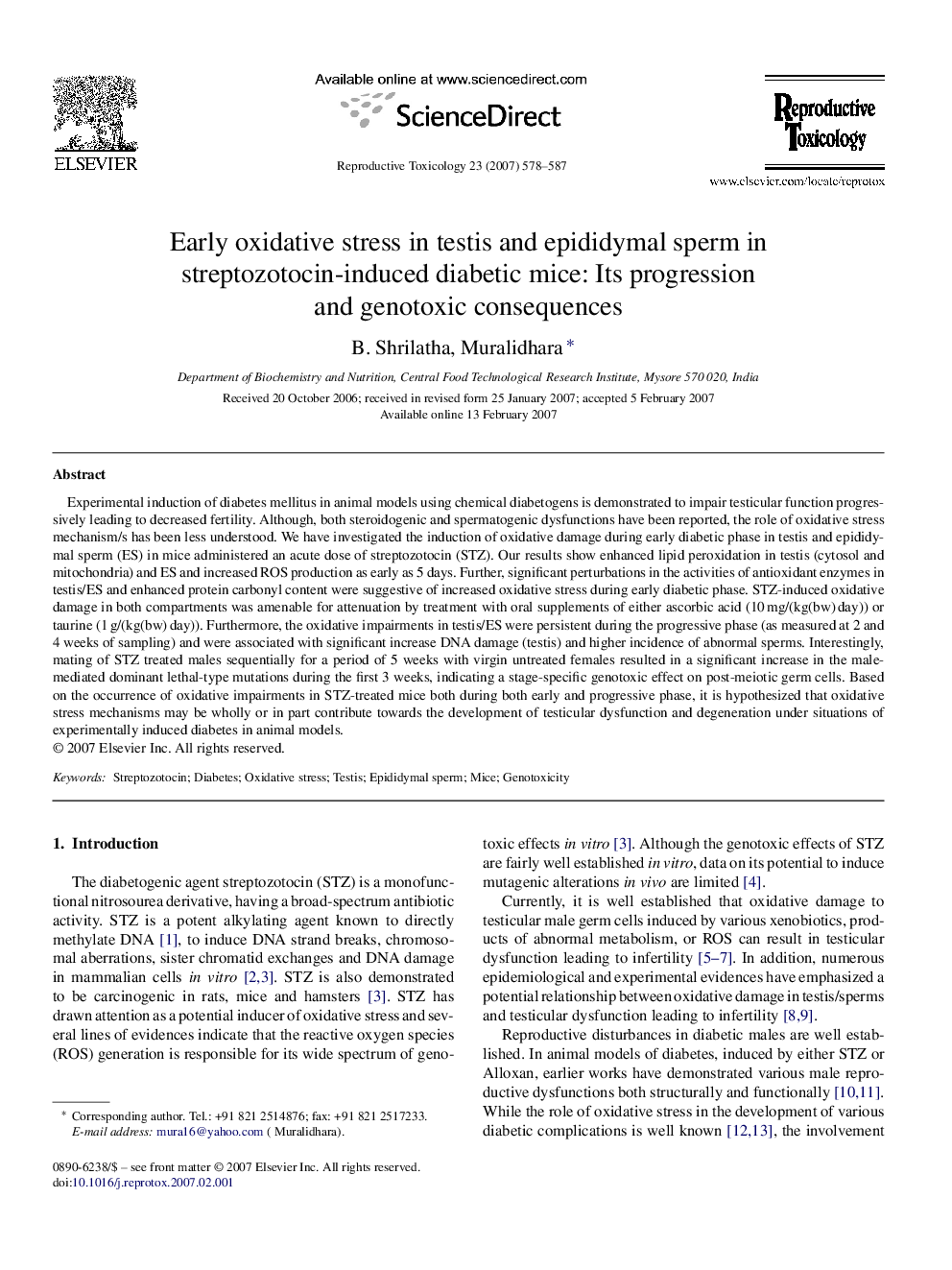| Article ID | Journal | Published Year | Pages | File Type |
|---|---|---|---|---|
| 2594583 | Reproductive Toxicology | 2007 | 10 Pages |
Experimental induction of diabetes mellitus in animal models using chemical diabetogens is demonstrated to impair testicular function progressively leading to decreased fertility. Although, both steroidogenic and spermatogenic dysfunctions have been reported, the role of oxidative stress mechanism/s has been less understood. We have investigated the induction of oxidative damage during early diabetic phase in testis and epididymal sperm (ES) in mice administered an acute dose of streptozotocin (STZ). Our results show enhanced lipid peroxidation in testis (cytosol and mitochondria) and ES and increased ROS production as early as 5 days. Further, significant perturbations in the activities of antioxidant enzymes in testis/ES and enhanced protein carbonyl content were suggestive of increased oxidative stress during early diabetic phase. STZ-induced oxidative damage in both compartments was amenable for attenuation by treatment with oral supplements of either ascorbic acid (10 mg/(kg(bw) day)) or taurine (1 g/(kg(bw) day)). Furthermore, the oxidative impairments in testis/ES were persistent during the progressive phase (as measured at 2 and 4 weeks of sampling) and were associated with significant increase DNA damage (testis) and higher incidence of abnormal sperms. Interestingly, mating of STZ treated males sequentially for a period of 5 weeks with virgin untreated females resulted in a significant increase in the male-mediated dominant lethal-type mutations during the first 3 weeks, indicating a stage-specific genotoxic effect on post-meiotic germ cells. Based on the occurrence of oxidative impairments in STZ-treated mice both during both early and progressive phase, it is hypothesized that oxidative stress mechanisms may be wholly or in part contribute towards the development of testicular dysfunction and degeneration under situations of experimentally induced diabetes in animal models.
